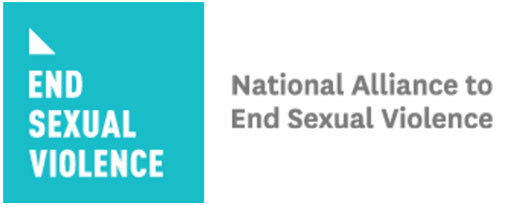According to 2010 data from the National Intimate Partner and Sexual Violence Survey, nearly 1 in 5 women have been the victim of rape or attempted rape in their lifetime; nearly 1 in 2 women have experienced some form of sexual violence; and 1 in 5 men have experienced a form of sexual violence other than rape.
Sexual assault is devastating to survivors and our nation.
The estimated lifetime cost of rape is $122,461 per survivor, or a population-based economic burden of nearly $3.1 trillion (2014 U.S. dollars) over survivors’ lifetimes. This estimate included $1.2 trillion (39%) in medical costs; and $1.6 trillion (52%) in lost work productivity among survivors and perpetrators.
Survivors need access to a range of services in both the immediate aftermath of sexual violence and over the span of their lives. These services include physical and mental health care to heal from sexual violence and mitigate the many consequences of trauma. From the forensic rape exam, conducted by a trained Sexual Assault Nurse Examiner, to ongoing visits with a primary care physician or counselor—health care is of critical importance to victims of sexual violence. It enables them to cope with the myriad effects of trauma and to thrive in their lives and in our families, workplaces, schools, and larger communities.
Survivors of sexual violence benefit from the progress we’ve made to ensure access to health care and health insurance through the Affordable Care Act.
Sexual assault can have significant impacts on survivors’ physical and mental health.
The short- and long-term effects of sexual violence can undermine a person’s physical and mental health. Based on an analysis of studies from 1980-2008, survivors of sexual violence have a significantly higher prevalence of anxiety, depression, eating disorders, post-traumatic stress disorder, and suicide attempts. According to The 2005 Behavioral Risk Factor Surveillance System, survivors of sexual violence are more likely to suffer from asthma and joint conditions. Studies have also found an increased risk of cervical cancer and sexually transmitted diseases. Among both women and men, previous non-consensual sex was associated with health conditions such as high cholesterol, stroke and heart disease while sexually victimized women were more likely to report having had a heart attack or heart disease than non-victims. A study of Kansas adults found a significantly higher prevalence of health risk behaviors (heavy drinking, binge drinking and current smoking) among women who had experienced sexual assault.
The American Health Care Act (AHCA) takes us backward in terms of costs, coverage and benefits, and we must oppose it on behalf of survivors.
We cannot afford to go backward on the protections available to survivors through the Affordable Care Act (ACA), and we must continue to support organizations like Planned Parenthood that provide important healthcare resources to survivors.
The ACA sets a baseline for survivors ensuring they cannot be charged more for or turned away from health coverage because of the physical and mental health consequences of sexual violence. The ACA provides options for survivors to access health insurance not tied to their partner or job. These policies have helped millions of women purchase health insurance, opening doors for them to get the services they need and know they are covered.
Planned Parenthood and other organizations that provide healthcare to low income survivors are also very important and must be protected. Planned Parenthood provides treatment for STIs and STDs, cancer screening/prevention and other women’s health services, including chronic disease treatment. Nearly 80% of their clients are at or below 150% of the federal poverty level. Any rollback of these services would be devastating for low income survivors who utilize Planned Parenthood for basic health services and disease intervention.
Survivors of sexual assault need and deserve access to the full range of health services, including preventive care, to heal and thrive. Communities must have access to comprehensive sexual violence prevention to prevent future violence.
Have additional questions? Contact Terri Poore, Policy Director, at terri@endsexualviolence.org


